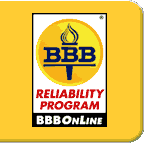I. Course Number and Title:
A. MAT104 College Algebra
B. Prerequisites: Assessment or MAT103 Intermediate Algebra
C. Credit Hours: 3 hours (lecture course)
D. NOTE: A graphing calculator is required! The TI-83 plus model is recommended
[other graphing calculators models will suffice]. Students should utilize the
instructional book that accompanies the graphing calculator of their choice, as
the College Algebra instructor will not have time to teach students how to use
their graphing calculators. THERE WILL BE A ONE WEEK GRACE PERIOD ON OBTAINING
YOUR GRAPHING CALCULATOR; AFTER THAT, STUDENTS MAY BE DROPPED FROM CLASS IF THEY
LACK THE PROPER COURSE MATERIALS TO SUCCEED [IN THIS CASE, A GRAPHING
CALCULATOR].
II. Department:
Math / Science
III. Course Description:
College Algebra is intended as a comprehensive, thorough study of the
fundamental laws of algebra , exponents, linear and quadratic equations,
polynomial and rational inequalities , system of equations, radicals and radical
equations, functions and graphing, polynomials and polynomial equations,
modeling, logarithms, complex numbers, augmented matrices, determinants,
regression, analysis of all kinds of graphs, linear systems in two or three
variables, and applications of most of the topics listed above, plus many other
topics as time permits. NOTE: A graphing calculator is required for this course!
IV. Course Competencies:
1. Be able to display basic skill knowledge of algebraic concepts, including but
not limited to the notations of mathematics , algebraic expressions, exponents,
polynomials, factoring, solving rational expressions, radicals , rational
exponents, and the mathematical difference between union and intersection.
2. Be able to solve linear equations and formulas , including problem solving of
applications of each.
3 Be able to solve linear inequalities in one variable with applications and
polynomial and rational inequalities with applications.
4. Be able to solve polynomial equations, rational equations, and
quadratic-type, non-routine equations, including applications.
5. Be able to simplify , manipulate, and solve problems involving complex
numbers .
6. Be able to solve non- factorable quadratic equations, including applications.
7. Be able to demonstrate basic skill knowledge about relations, functions, and
a variety of graphs, including piecewise functions.
8. Be able to analyze linear functions and utilize the concept of rate of change
to problem solve.
9. Be able to analyze quadratic, cubic, absolute-value, square root , reciprocal,
polynomial, linear, and other equation model (or “toolbox”) functions.
10. Be able to demonstrate basic skill knowledge about the algebra and
composition of functions and one-to-one and inverse functions.
11. Be able to perform transformations on various functions and graph general
quadratic functions, including functions with asymptotes and rational
components.
12. Be able to provide a complete analysis of the graph of a non-routine
function.
13. Be able to perform polynomial long division and synthetic division.
14. Be able to utilize the remainder and factor theorems, and use a variety of
techniques to find the zeroes of polynomial functions.
15. Be able to graph a variety of polynomial and rational functions.
16. Be able to analyze exponential functions , logarithms and logarithmic
functions, and the exponential function and natural logarithms.
17. Be able to solve exponential / logarithmic equations with applications,
business & finance application problems, be able to model linear, quadratic, and
cubic regression situations, and be able to solve problems involving
exponential, logarithmic, and regression models.
18. Be able to solve linear and non - linear systems in two or more variables ,
with applications.
19. Be able to solve linear systems using matrices and row operations.
20. Be able to demonstrate a knowledge of the algebra of matrices and be able to
solve linear systems using matrix equations.
21. Be able to utilize matrix applications, including using Cramer’s Rule and
partial fractions.
22. Be able to utilize the online practice material that accompanies the current
College Algebra text, such as ‘ALEKS’, ‘MATHZONE’, or the ‘MYMATHLAB’ system for
tutorial support or to complete homework, if it is available.
23. Be able to demonstrate satisfactory writing skills in essay-style questions
on examinations and/or quizzes or on written journals in response to questions
about course content and direction of online quiz activities administered
through the use of an online-medium, if available. This material should be used
to assess if he students are learning to enhance their critical thinking skills.
V. Assessment Procedure :
Written examinations covering all materials emphasized in the course
competencies should be expected, including a REQUIRED, COMPREHENSIVE FINAL
EXAMINATION. Some assessment will occur through regular collection of homework
and occasional in-class work.
VI. Course Content:
Chapter R [Review]; Chapter 1; Chapter 2; Chapter 3; Chapter 4; Chapter 5; and,
Chapter 6; plus other parts of the text, as time permits.
VII. Instructional Materials:
Textbook: COLLEGE ALGEBRA, by John W. Coburn; The McGraw-Hill Publishing Co.;
2007.
Guidelines for Requesting Accommodation Based on
Documented Disability or Medical Condition
It is the intention of Highland Community College to work
toward full compliance with the Americans with Disabilities Act, to make
instructional programs accessible to all people, and to provide reasonable
accommodations according to the law.
Students should understand that it is their responsibility
to self-identify their need(s) for accommodation and that they must provide
current, comprehensive diagnosis of a specific disability or medical condition
from a qualified professional in order to receive services. Documentation must
include specific recommendations for accommodation(s). Documentation should be
provided in a timely manner prior to or early in the semester so that the
requested accommodation can be considered and, if warranted, arranged.
On-Campus Students: At enrollment all on campus students
will complete a form which will allow them to self-identify any disability.
Questions should be directed to the Disabilities Coordinator.
Off-Campus Regional Students: Self-identify your
disability and accommodation needs with the Regional Coordinator and/or
instructor preferably prior to the first night of class or early in the
semester.



